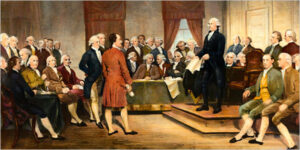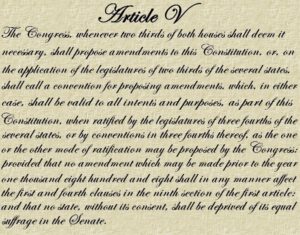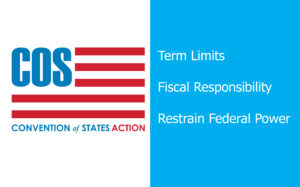History marks the summer of our 1787 Constitutional Convention as a time when our founding fathers sought balance to counteract chaos. Having witnessed 2,700 years of man’s servitude under the totalitarian rule of the divine rights of kings, these men trusted God to give their fledgling country a chance for something new. But the truth that men are not angels prompted the need for an enabling form of governance that would guide the nation forward with guaranteed freedom and liberty while still maintaining a civil society.
 These 55 well-read delegates relied most heavily on the Judeo-Christian Bible and the writings of Baron de Montesquieu, Sir William Blackstone, and John Locke. The Bible provided the spiritual guidance for the conduct of man under God. Montesquieu wrote that legislative, executive, and judicial government functions should not rely on one person but should be dispersed over multiple branches to prevent one from becoming too powerful. Blackstone offered a study of common English law that should be available to all men. And Locke argued that government owed its legitimacy to the people who sponsored it and that the purpose of government was to protect the God-given rights of life, liberty, and property.
These 55 well-read delegates relied most heavily on the Judeo-Christian Bible and the writings of Baron de Montesquieu, Sir William Blackstone, and John Locke. The Bible provided the spiritual guidance for the conduct of man under God. Montesquieu wrote that legislative, executive, and judicial government functions should not rely on one person but should be dispersed over multiple branches to prevent one from becoming too powerful. Blackstone offered a study of common English law that should be available to all men. And Locke argued that government owed its legitimacy to the people who sponsored it and that the purpose of government was to protect the God-given rights of life, liberty, and property.
The first three Articles of our Constitution went to great lengths to balance the legislative, executive and judicial branches of government. They were painstakingly defined and enumerated as separate but not-coequal branches, using the concept of counterbalance. The legislative branch was responsible to its citizens to enact limited government. The executive branch was granted the power to enact the law and was also to be subject to the approval of the governed. The judicial branch was tasked with adjudicating legal disputes between the states and other parties. Each branch was charged with balancing the actions of the other two.
But the framing authors also knew that the product of their four-month effort would likely require some future modifications. They knew the document may give too much power or not enough power in some areas, or simple omissions may occur and changes would eventually be necessary. As such, they had the wisdom to write in Article V for making Constitutional Amendments.
They insisted and unanimously approved a balanced method whereby either two thirds of both houses of Congress or two thirds of the states could propose amendments. Wherever amendment proposals came from, they would have to be ratified by three fourths of the sovereign states to take effect. The states were to be the voice of the people at the lowest level of governance and the final authority on any changes to be made.
 The original version of Article V allowed only Congress to propose amendments to the Constitution. This would have been a serious mistake, for then only the federal government would have the power to amend our founding document. Fortunately, George Mason immediately spotted the problem. According to Madison’s notes, Mason rose to point out that under this version of Article V, “No amendments of the proper kind would ever be obtained by the people, if the government should become oppressive.”
The original version of Article V allowed only Congress to propose amendments to the Constitution. This would have been a serious mistake, for then only the federal government would have the power to amend our founding document. Fortunately, George Mason immediately spotted the problem. According to Madison’s notes, Mason rose to point out that under this version of Article V, “No amendments of the proper kind would ever be obtained by the people, if the government should become oppressive.”
So, the Framers amended Article V to allow Congress and the states to propose amendments. It reads, “… or, on the Application of the Legislatures of two thirds of the several states, shall call a Convention for proposing Amendments, which, in either Case, shall be valid to all Intents and Purposes, as Part of this Constitution, when ratified by three fourths thereof, ….”.
This process retained the necessary balance between the states and Congress while not endangering our beloved Constitution. This method for limiting federal power, however, has not yet been used. Even though states have proposed over 400 separate amendments, no single amendment or agenda has been endorsed and agreed upon by two thirds of the states to call for a Convention.
The wisdom of our forefathers is once again apparent. An Article V Convention of States can’t be called on a passing whim. Wide acceptance must be gathered for an issue, so while Convention proposals have come close to the two-thirds standard on multiple occasions, none have gathered the necessary two-thirds majority.
 Convention of States Action (COS) is the current grassroots movement to propose amendments in three specific areas. The first is to limit the terms of office for federal officials and for Congress. The next is to impose fiscal restraints on spending and taxation. And the third is to limit the power and jurisdiction of federal government.
Convention of States Action (COS) is the current grassroots movement to propose amendments in three specific areas. The first is to limit the terms of office for federal officials and for Congress. The next is to impose fiscal restraints on spending and taxation. And the third is to limit the power and jurisdiction of federal government.
Term limits would bring an end to the professional politicians and bureaucrats who have long been distant from the will of the American citizen. A few elite politicians now commonly circumvent equal representation from the 535 elected Congressional members and hold enormous power to determine what legislation rises to the floor of Congress. A few select members of Congress are subject to extreme lobbying efforts and are tempted by the corruption that comes with this immense power. The rank-and-file junior members of Congress seldom get the chance to represent their constituents to debate individual merits of the proposals that are buried in thousands of pages of law. The vote is on an “all or nothing” basis, and the American citizen is the victim of this widespread abuse. The incumbent benefits from tremendous campaign contributions and the reelection rate reflects the power of widespread advertising.
Career politicians have expanded the federal debt to its current $28 trillion, and the spending continues to expand regardless of which party is in power. Our grandchildren have no voice in the debt accumulation they must eventually resolve. All government accounting entities agree this model is unsustainable, but Congress has no appetite to limit its own ability to satisfy all special interest entities and to feed the monstrous spending binge.
Our country spends so much money primarily because the government has stepped beyond the enumerated, limited powers granted to it by our Constitution. They have assumed the role of provider rather than the protector of our God-given rights of life, liberty and the pursuit of happiness. The rise of a socialist, Marxist influence in our government has become undeniable as a result of Constitutional interpretations never ratified by the American people. The Annotated US Constitution now consists of thousands of pages of interpretations conflicting with our original Constitution, amendments that would never stand the light of state ratification.
In addition, government agencies and departments write approximately 30 rules and regulations for every law created by Congress, each without reasonable debate by the average American citizen. We are the victims of executive orders and bureaucratic rules that are constantly being challenged in court but continue in a pace far overreaching our financial ability to litigate. Our Bill of Rights are diminished and diluted by this onslaught of government overreach.
This trend of an overstepping government will certainly continue without using the constitutional balance given us in an Article V Convention of States. If we believe in the Constitutional concept of a limited government that receives their limited power from “We the People,” a Convention of States is a Constitutional bedrock foundation we must support.
I encourage you to attend one of the FreedomFest sessions provided by COS co-founder Mr. Mark Meckler, on Friday, 4:55 pm for “Censorship in the Age of Big Tech Oligarchy – What can we do?” and again Saturday 11:00 “Hope in the Age of Despair: Convention of States is the Solution.” Also stop by our FreedomFest booth number 806 in Rushmore Hall to visit and to sign the petition showing your legislator your support for Convention of States Action.
 Harvey Fitzgerald is the District Captain, Convention of States Action. Harvey is a retired Army Lieutenant Colonel veteran with 34 years of combined active and national guard service with a Bronze Star and many other decorations. He was included in the Outstanding Young Men of America and is a former banker, teacher, collegiate rodeo coach and ranch cowboy. The family resides at their ranch in western South Dakota where they run a commercial cow-calf and small beef feedlot operation. They work as a team to speak at dozens of COS informative events and enjoy their roles as a Constitution Alive coach. Harvey was named the 2020 Convention of States Volunteer of the Year but he attributes this recognition as a team family achievement. He, his wife Velva, and daughter Jacqueline are proud to be citizen advocates for this grassroots movement and will be in the Freedom Fest booth throughout this celebration of liberty.
Harvey Fitzgerald is the District Captain, Convention of States Action. Harvey is a retired Army Lieutenant Colonel veteran with 34 years of combined active and national guard service with a Bronze Star and many other decorations. He was included in the Outstanding Young Men of America and is a former banker, teacher, collegiate rodeo coach and ranch cowboy. The family resides at their ranch in western South Dakota where they run a commercial cow-calf and small beef feedlot operation. They work as a team to speak at dozens of COS informative events and enjoy their roles as a Constitution Alive coach. Harvey was named the 2020 Convention of States Volunteer of the Year but he attributes this recognition as a team family achievement. He, his wife Velva, and daughter Jacqueline are proud to be citizen advocates for this grassroots movement and will be in the Freedom Fest booth throughout this celebration of liberty.

